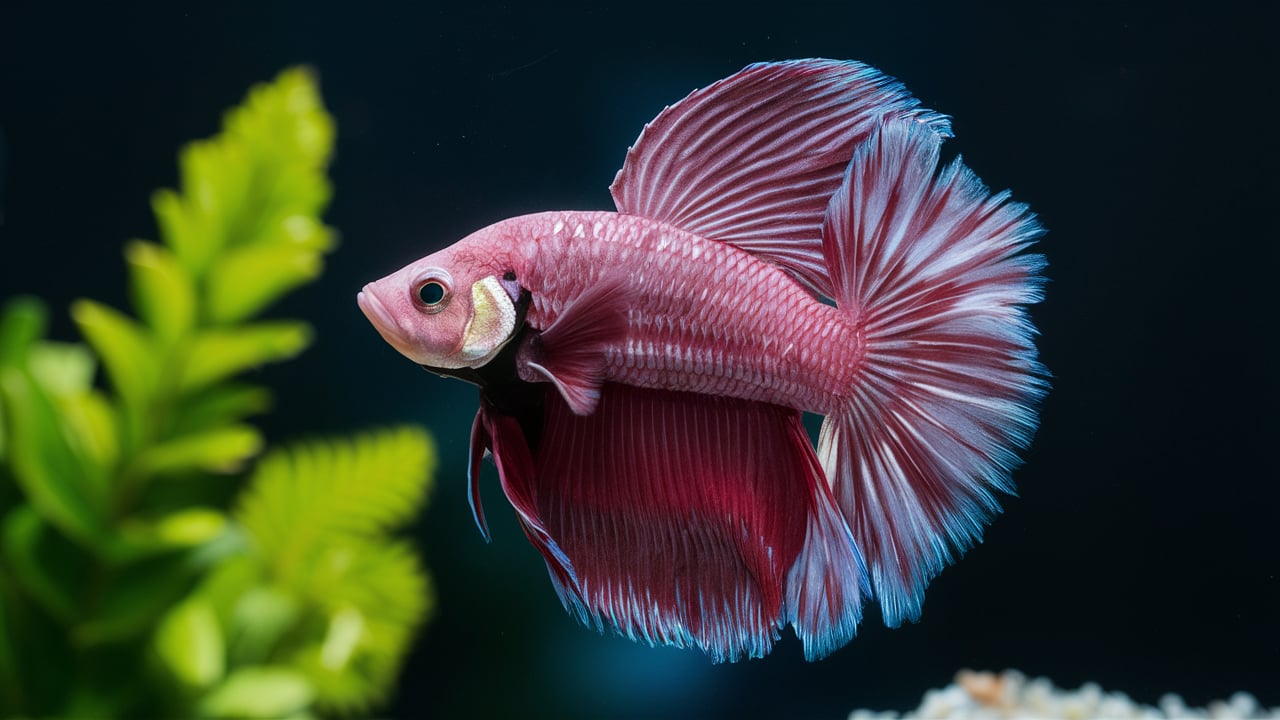Betta fish, with their captivating colors and flowing fins, are a popular choice for aquariums around the world. But are these vibrant fish nocturnal creatures, active only under the cloak of darkness? In this comprehensive guide, Koi Fish Tips will delve into the fascinating world of betta fish sleep patterns, unraveling the truth behind their nocturnal habits.
Unveiling the Truth: Betta Fish Sleep Patterns
Understanding Betta Fish Behavior
Betta fish, also known as Siamese fighting fish, are renowned for their striking colors, aggressive nature, and intricate labyrinth organs that allow them to breathe air directly from the surface. Their behavior is often influenced by factors like lighting, water temperature, and food availability.
Are Betta Fish Nocturnal?
While betta fish are not strictly nocturnal, they do exhibit a unique sleep pattern that differs from other fish species. Their sleep cycle is more akin to a “resting” period, characterized by reduced activity and a lowered metabolic rate.
Betta Fish Resting Habits
Betta fish typically rest during the night, but their sleep is not as deep as that of mammals. They may remain partially active, occasionally moving or twitching their fins. Their resting behavior is more akin to a state of reduced activity, where they conserve energy and maintain their vital functions.

Factors Influencing Betta Fish Resting Patterns
Light and Darkness
Betta fish are sensitive to light changes. They tend to be more active during daylight hours, when they are more likely to hunt for food and interact with their surroundings. As darkness falls, their activity levels decrease, and they enter a resting phase.
Water Temperature
Water temperature plays a significant role in betta fish behavior. Optimal water temperatures for betta fish are between 78°F and 82°F. At lower temperatures, betta fish may become less active and enter a resting phase more frequently.
Food Availability
Betta fish are opportunistic feeders. They tend to be more active during feeding times, but they may also rest after a meal, especially if they are well-fed.
Observing Your Betta Fish’s Sleep Patterns
Signs of Resting
You may notice several signs that your betta fish is resting, including:
- Reduced Activity: Your betta fish may move less frequently and spend more time resting on the bottom of the tank.
- Slowed Breathing: Their breathing may become slower and more shallow.
- Closed Eyes: Betta fish do not have eyelids, but their eyes may appear to be closed or glazed over when they are resting.
Creating a Restful Environment
To ensure your betta fish has ample opportunity to rest, consider the following:
- Dimming the Lights: Reduce the amount of light in your betta fish’s tank during the evening hours to signal that it’s time to rest.
- Quiet Environment: Minimize noise and distractions around your betta fish’s tank.
- Consistent Routine: Establish a regular feeding schedule and lighting routine to help your betta fish adjust to a predictable environment.
What happens if betta fish don’t get enough sleep?
While betta fish don’t sleep in the same way mammals do, they do need a period of rest to recharge. If they don’t get enough rest, it can lead to a number of problems, including:
- Stress: Lack of sleep can make betta fish more susceptible to stress. This can manifest in various ways, such as increased aggression, hiding, or loss of appetite.
- Weakened Immune System: Just like in humans, lack of sleep can compromise the immune system, making betta fish more vulnerable to diseases.
- Reduced Appetite: A tired betta fish may not have the energy to hunt for food or show interest in eating, leading to malnutrition.
- Increased Aggression: A stressed and sleep-deprived betta fish may become more aggressive towards tank mates or even towards its own reflection.
- Reduced Activity: A tired betta fish may become lethargic and less active, spending more time resting on the bottom of the tank.
Frequently Asked Questions about Betta Fish Sleep
Do betta fish sleep at night?
While betta fish are not strictly nocturnal, they do exhibit a unique sleep pattern characterized by reduced activity and a lowered metabolic rate.
How long do betta fish sleep?
Betta fish may rest for several hours at a time, especially during the night.
Do betta fish need darkness to sleep?
While darkness can help signal a resting period, betta fish can also rest in dimly lit environments.
Conclusion
Betta fish, while not strictly nocturnal, do exhibit a unique sleep pattern that is more akin to a resting period. Their sleep cycle is influenced by factors like light, temperature, and food availability. By understanding their sleep patterns and creating a restful environment, you can ensure your betta fish thrives in your care.

Bài viết liên quan
Types Of Neocaridina Shrimp: Your Complete Guide
Are you looking to add a splash of vibrant color and captivating charm to your [...]
Jul
Why Are Koi Fish So Expensive? The Secrets Of Their Value
Why are koi fish so expensive? This question often arises among those new to the [...]
Jul
Different Types Of Guppies – A Colorful Journey
Guppies, also known as rainbow fish, are among the most popular aquarium fish in the [...]
Jul